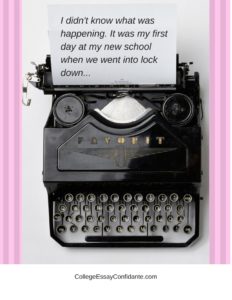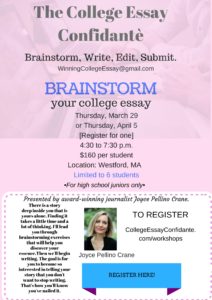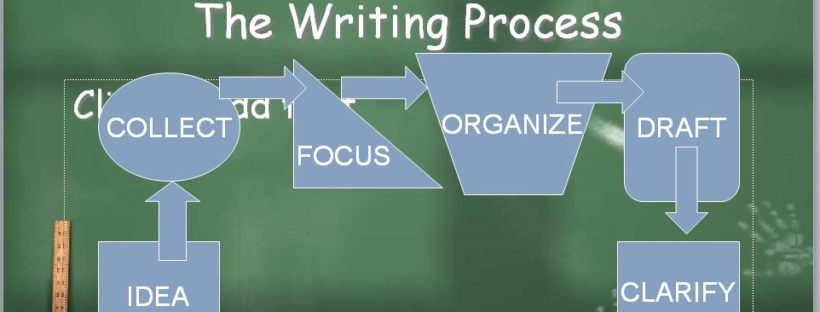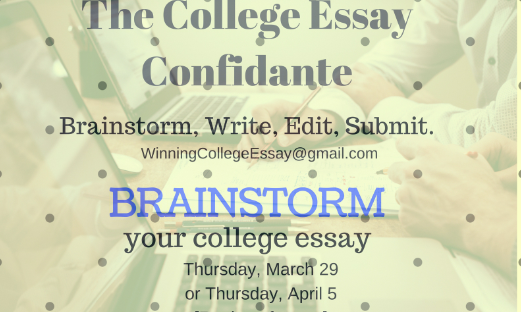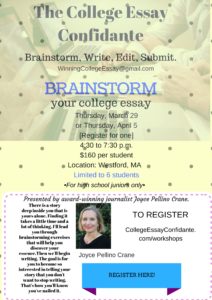| Cobleskill, New York – An advanced technology with enormous potential in the sustainable energy sector will be built and tested at a domestic military base, thanks to a $1.6 million grant announced recently by the combined EPA and Department of Defense Environmental Security Technology Certification Program (ESTCP). The grant supports further development of SUNY Cobleskill’s rotary gasifier, initially funded by a joint EPA and DOD program, which turns most combustible waste into a clean-burning gas. SUNY Cobleskill professors Paul Amodeo and David Waage have refined the gasifier to a point of unparalleled efficiency. This endeavor is one of only thirty-seven new ESTCP projects slated to begin in 2018.
The grant supports building and testing a fully automated, portable rotary gasifier waste-to-energy system at a domestic military base. The testing period will demonstrate the unit’s operability by troop personnel for conversion of non-hazardous waste into electricity, reducing the liquid fuel used to generate electrical power by at least fifty percent. Researchers expect to see a net energy gain and the transformation of waste from a liability to a resource. The lightweight, flexible, and safe SUNY Cobleskill gasifier could replace fuel-hungry incinerators at military bases worldwide. It is particularly suitable for use at remote Forward Operating Bases. “Based on our 100-year practice of leading in sustainable management of environmental resources combined with state-of-the art technology, SUNY Cobleskill once again sets the standard with a global scope” said Dr. Marion A. Terenzio, President of SUNY Cobleskill. “We are committed to continuing our tradition of safeguarding the environment while advancing education.” Thanks to a series of technical innovations, the gasifier developed by Waage and Amodeo is cleaner, more efficient, and more convenient than its predecessors. From almost any combustible material it produces fuel that is between two and five times richer in BTU (British thermal unit) value than conventional synthetic gas. When burned, the fuel is “orders of magnitude” cleaner than pure diesel. It also produces ash, which can be used in building materials like cement. The machine they built at SUNY Cobleskill can produce 60 kilowatts of power a day from two tons of trash, enough to power about 50 standard American homes. There is tremendous potential for the gasifier in domestic and community use. “We would like to refine the process to the point that we don’t just prevent material from going into the landfills, but maybe mine material from the landfills,” Amodeo said. “You can take the big mountains that they’re making and start reversing the process.” |
|
| About SUNY Cobleskill:
With an emphasis on experiential education, SUNY Cobleskill prepares students for successful careers, advanced studies, and engaged citizenship. SUNY Cobleskill is an accredited, baccalaureate, residential college, with a rich academic tradition that spans 100 years. Today, more than 2,500 students are enrolled in the 52 baccalaureate and associate degree programs offered through two schools – The School of Agriculture and Natural Resources and The School of Business and Liberal Arts and Sciences. Students live and learn on a modern, 902-acre campus that features outstanding educational facilities, including a contiguous farm with an equestrian center and 200-cow dairy facility, cold and warm water fish hatcheries, specialized classrooms and laboratories, two state-of-the-art culinary arts teaching kitchens, a student-run restaurant, child development and child care centers, and an art gallery. More information on SUNY Cobleskill can be found at Cobleskill.edu. |
Month: February 2018
Write as if Your Future Depends on It Because it Does
WRITING YOUR ESSAY (1) WRITING YOUR ESSAY (3)
Two workshops coming up!
Brainstorm Your College Essay
THURSDAY, MARCH 29, 4:30 – 7:30 P.M.
OR
(One or the other — not both)
THURSDAY, APRIL 5, 4:30 – 7:30 P.M.
****Westford Location****
Designed to help students find a topic for their college application essay, “Brainstorm Your College Essay,” offers an idea-sharing session followed by writing exercises and feedback. Students will leave with a solid topic and an opening paragraph for the essay. Fee: $160 per student. Limited to 6. This three-hour workshop is for juniors only. Questions? Email mailto:winningcollegeessay@gmail.com
About the tutor
Joyce Pellino Crane is an award-winning journalist, recognized for editorial writing by two major newspaper organizations. Her essays have appeared in theBoston Globe, Newsday, and GateHouse Media publications. She has taught college essay workshops to high school students for five years. Joyce is the former editor of the Westford Eagle and Littleton Independent and is an approved Westford Academy tutor. She is currently the multimedia news director at Westford Community Access Television. REGISTER HERE
Two College Essay Brainstorming Workshops Coming Up
The Art of the Essay; The College Essay Confidantè Demystifies the Application Process
The College Essay Confidantè is dedicated to educating high school juniors and their parents or guardians on the how to write the college application essay. For more information, please download my College Essay Guide. REGISTER HERE for upcoming workshops in Westford, Massachusetts.
Choosing the right topic
Writing your college essay is not complicated. Conceiving a solid and compelling topic is.
When you choose a subject to write about, check to see if it stirs emotion in you. If it does, you’re headed in the right direction. If not, take a step back and search for another subject.
Your options
The Common Application provides seven prompts to help you choose an essay topic (see post entitledTwo New Prompts for the College Essay). Four of the prompts ask you to reveal something about your personal experience. If you choose one of these, find a topic that comes from a vivid, thought-provoking, or unforgettable memory. The fifth prompt asks you to describe a problem you solved or would like to solve. If you choose this prompt, write with passion and make sure you are deeply invested in your argument. The sixth prompt says to “describe a topic, idea, or concept you find so engaging that it makes you lose all track of time.” I love this suggestion because that’s exactly what happens to me when I write. I get so absorbed in the story I’m telling that I’m not aware of how much time is passing. The seventh prompt gives you free rein to write on any topic or to recycle an essay you’ve already written. I don’t find it to be a helpful prompt and I don’t recommend re-using an essay written for another purpose. Your college essay topic should be unique, purposeful, and compelling. To take an essay written for your English class and attach it to your college application indicates a lack of effort. I wouldn’t do it.
Just do it
Now start writing. Don’t worry about grammar, spelling, logic or organization. Just put your thoughts on paper. You can start with random sentences, an outline or complete paragraphs. The more you write, the more form and shape your essay will take.
Visualizing the essay
If you were to draw a picture of a short essay it would be a circle.
It starts with a premise, dilemma, purpose or motive. Did you have a moment of uncertainty as you waited to hear the outcome of an audition? Did you deliver the eulogy at your father’s funeral? Did you have a terrifying experience when you were lost in a deeply wooded area?
Coming up with a thesis statement
Begin with a thesis statement: “I was 12 when I delivered my father’s eulogy;” “Assessment tests squeeze the joy out of learning;” “Climate change is no myth and here’s why.”
Putting things in context
Then set the stage by detailing the issue and putting the matter into context: describe the surrounding geography, landscape, scenery, or setting. Were you standing alone on the stage looking at rows of empty seats? Have assessment test scores dropped over the past five years? Was the church filled with mourners? What kind of trees surrounded you? Is there evidence that the Arctic icebergs are melting?
Finding a resolution
The resolution of the essay comes next. Tell your reader how you dealt with your failure or success. What did you learn by failing to win the part in the play? How did you cope with the loss of your father at age 12? How did you find your way out of the woods? What are the alternatives to assessment testing? What’s likely to happen as climate change progresses?
Reaching resolution requires research. Even a personal essay means asking family members questions to corroborate your memories and to confirm your hunch.
Reaching a conclusion
Finally, bring your essay full circle by tying it back to the beginning with a conclusive statement. Ending with a powerful statement often comes naturally to the essayist simply by writing a few drafts. The process will help you think deeply and rationally about your subject.
Help is Nearby
I’m Joyce Pellino Crane, the College Essay Confidantè. My background is journalism. I’ve won awards for editorial writing. I’ll point you in the right direction and encourage you to keep going.
Feel free to contact me with any questions: winningcollegeessay@gmail.com.
‘Brainstorm Your College Essay’ Workshops Coming Up in March and April
The College Essay Confidante will hold brainstorming workshops on two separate dates to make it convenient for juniors to attend.
The first workshop takes place on Thursday, March 29 from 4:30 to 7:30 p.m.
The second workshop takes place on Thursday, April 5 from 4:30 to 7:30 p.m.
Register here for either the first or the second workshop (only one).
I’m Joyce Pellino Crane, the College Essay Confidante. My background is journalism. I’ve won awards for editorial writing. I’ll point you in the right direction and encourage you to keep going.
Feel free to contact me with any questions: winningcollegeessay@gmail.com.
Prompting a Persuasive Argument for the College Essay; High School Students Across the Country are Taking a Stand on Gun Violence
As high school students across the country take a stand against gun violence, juniors are starting to think about their college essay topics.
The fourth essay prompt listed by the Common Application gives juniors and rising seniors the option of writing a persuasive argument. Here is the wording:
“4. Describe a problem you’ve solved or a problem you’d like to solve. It can be an intellectual challenge, a research query, an ethical dilemma – anything that is of personal importance, no matter the scale. Explain its significance to you and what steps you took or could be taken to identify a solution.”
This is an opportunity to take a political stand on firearms and the Second Amendment of the U.S. Constitution. It’s a chance to delve deeply into how state laws vary around gun ownership and the legal purchase of guns.
Whether you’re for or against gun control or feel passionately about another issue, your college essay can be a platform.
Two Upcoming Workshops
If you need help, the College Essay Confidante is offering two workshops to help you “Brainstorm Your College Essay.” Register for either Thursday, March 29 or Thursday, April 5 (one or the other). Both will take place from 4:30 to 7:30 p.m. in a Westford, Massachusetts location. Students will leave with a solid topic and the opening paragraph for their essays. The workshop is limited to no more than six high school juniors. The fee is $160 per student.
National Walk Out on March 14
#Enough! National School Walkout, organized by the same group which planned the Women’s March in January 2017, is a planned demonstration by students, parents, teachers and administrators. The school communities are being encouraged to walk out of the classroom for 17 minutes at 10 a.m. on March 14. Each minute represents one of the 17 students and teachers shot down at the Marjory Stoneham Douglas High School on Feb. 14 allegedly by a man carrying an AR-15 automatic firearm.
Another walkout being promoted on social media is scheduled for April 20, the anniversary of the Columbine School massacre in 1999.
Do Your Homework
Do your homework. Before you begin the essay, read everything on the topic that you can get your hands on. Engage friends and family members in discussions. Think deeply and jot down notes, thoughts, ideas, and philosophies.
Be clear on your position and then start writing your argument.
Use subheads
Try to organize your essay by using subheads.
Allow your passion to guide you, but keep your essay fair and balanced. You must explain the arguments for the other side. Treat the arguments of those on the other side with dignity and respect.
Dare to Take a Stand
Dare to take a stand and try your hand at persuasive writing. If you have a passion on the topic, share it, because your passion will shine through and your essay will be compelling. But if you take this path, do so in a professional and just manner.
Need Help?
I’m here if you need someone to guide you as you conduct your research and begin writing. I’m Joyce Pellino Crane, the College Essay Confidante. My background is journalism. I’ve won awards for editorial writing. I’ll point you in the right direction and encourage you to keep going.
Feel free to contact me with any questions: winningcollegeessay@gmail.com.
Two Brainstorming Workshops for Juniors Coming Up
The College Essay Confidante will hold brainstorming workshops on two separate dates to make it convenient for juniors to attend.
The first workshop takes place on Thursday, March 29 from 4:30 to 7:30 p.m.
The second workshop takes place on Thursday, April 5 from 4:30 to 7:30 p.m.
Register here for either the first or the second workshop (only one).
